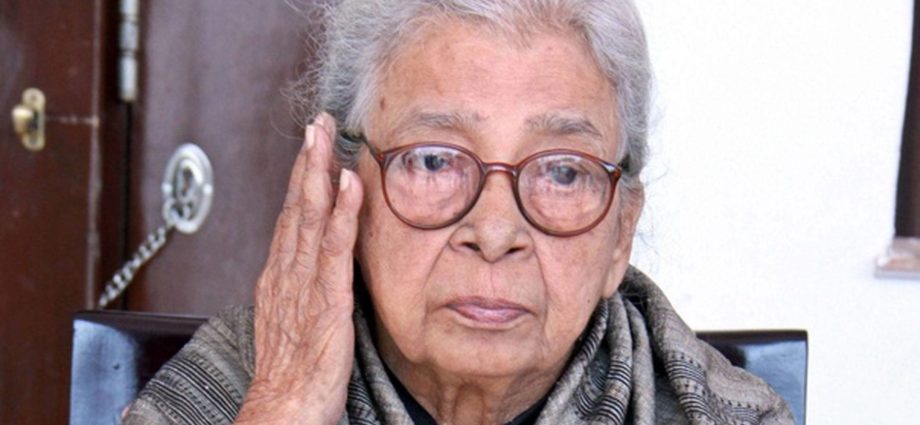Bengali fiction writer and social activist Mahasweta Devi expired on 28 July 2016 in Kolkata. She was born on 14 January 14, 1926 in Dhaka now in Bangladesh. Her notable literary works include Hajar Churashir Maa, Rudali, andAranyer Adhikar.
She worked for the rights and empowerment of the tribal people. Mahashweta Devi was honoured with Gyanpeeth award, the highest literary award in India in 1996. The award was given to her by Nelson Mandela, who was then visiting India.
India Briefings presents a rare interview with Mahashweta Devi. The interview was done by the BBC journalist Lalit Mohan Joshi. Here is his account:
‘Back in 1998, it was a sheer delight to have a rare interview with Mahashweta Devi ji at her residence in Kolkata. I recorded an interview with this rare icon, a real leftist who had spent her life for the marginalised rural poor. I was amazed to see how ordinary and simple life she led.
She spoke to me about her family. Coming from a great family of intellectuals, she was legendary filmmaker Ritwik Ghatak’s niece and was married to famous Bengali playwright, Bijon Bhattacharya, one of the founders of IPTA (Indian Peoples Theatre Association). She was one of the pioneer writers who for the first time addressed Dalits and tribals especially women. Her epic work ‘Draupadi’ deals with the life of a tribal woman who is tortured and raped by the police.
Recipient of highest Indian and international honours, she was profusely praised by none other than Nelson Mandela. I found her unassuming and full of humour. Two of her books Rudali and Hazar Chaurasi Ki Ma were turned into feature films. She held Govind Nihalani in high esteem for directing Hazar Chaurasi Ki Ma and told me she was extremely moved by the film.
Salutes to a rare entity whose sole purpose and mission in life was to serve the tribals and the rural poor. She told me that the ‘real source of our history and culture were the rural poor and the tribals and not the so-called bunch of urban educated elite.’
Lalit Mohan Joshi, London, 30 July 2016

